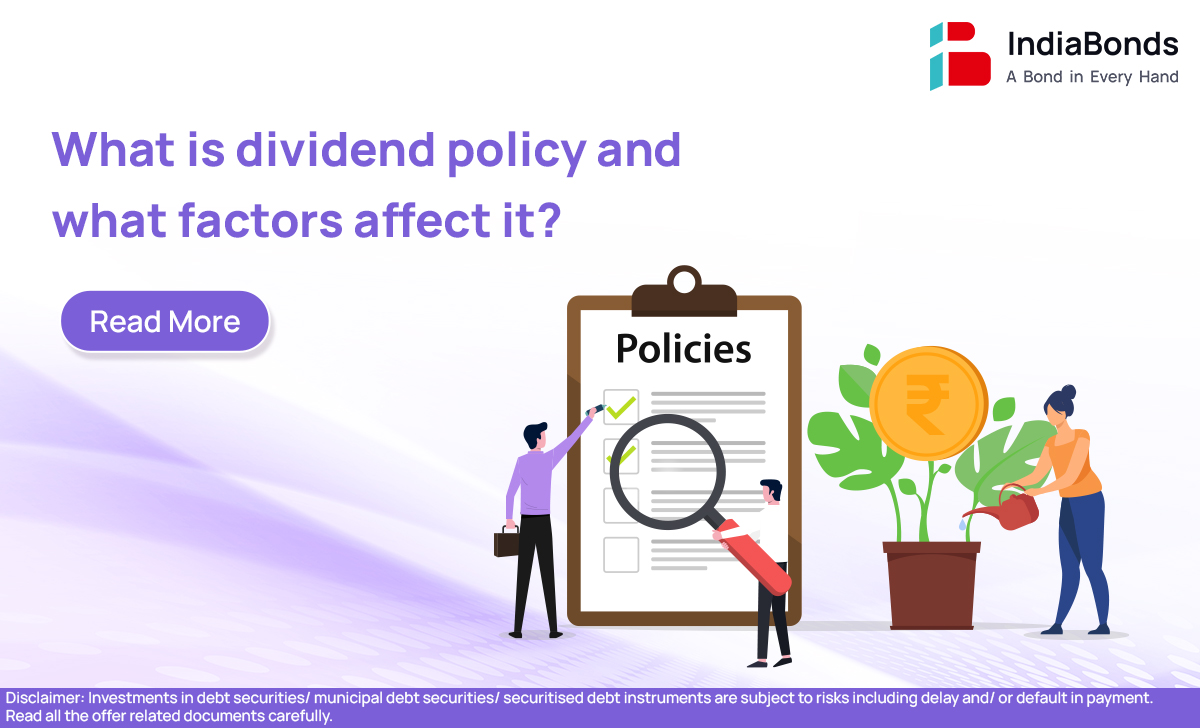What is dividend policy and what factors affect it?

Introduction
Let’s say you own a bakery. It’s doing well, and after paying for flour, staff, electricity and everything else, you’ve got some money left. Now the big question is – should you keep all that money in the business, or share some of it with your family who helped you build it?
This decision – whether to keep profits or share them – is exactly what companies deal with too. And that decision is called a dividend policy.
What Is a Dividend Policy?
A dividend policy is the rule a company follows to decide how much of its profit it will give to its shareholders and how much it will keep for itself to grow the business.
It’s like this: You’ve got ₹100 left after everything. Will you give ₹50 to your family and use ₹50 to buy a new oven? Or will you give ₹20 and keep ₹80? Your policy – how you usually decide this split – is your dividend policy.
Some companies always share profits. Some don’t share at all. And some do a bit of both. That pattern is their dividend policy.
Understanding Dividends
So what’s a dividend?
It’s just a fancy word for the part of profit that a company gives to its shareholders.
If you buy shares of a company, you become a part-owner. If the company makes money and decides to give out dividends, you get a portion of that. More shares you hold, the bigger your cut.
For example, if you own 100 shares of a company that gives ₹5 per share as a dividend, you’ll get ₹500. Easy money? Sort of.
How a Dividend Policy Works
Let’s break it down even more. A company earns profits. Now they have two choices:
- Reinvest in the business (like buying new equipment, expanding, hiring people).
- Give some money to shareholders as dividends.
What they choose depends on:
- How much profit they made
- Their future plans
- How much cash they have
- Their past habits
If a company is growing fast, it may not give dividends. Instead, it reinvests everything. But if it’s a steady business (like a utility company), it might give regular dividends.
Types of Dividend Policies
There are mainly three types:
- Stable Dividend Policy
Same or increasing dividend every year, no matter what. Investors love this. - Constant Payout Ratio
Company gives a fixed % of its profits as dividends. So if profits fall, dividend falls too. - Residual Dividend Policy
Company first invests as much as needed. Whatever is left is given as dividend.
Each policy shows how a company thinks – cautious, generous, growth-focused, or investor-friendly.
Importance of Dividend Policies
Why should we care?
Because dividend policy tells us a lot about a company:
- Is it confident about its future?
- Does it have solid cash flow?
- Is it rewarding its shareholders?
Also, for investors like you and me, it helps decide which stocks to pick. If you want regular income, go for companies with a steady dividend policy.
Example of a Dividend Policy
Let’s take an example:
Infosys, a large Indian IT company, often gives dividends to its shareholders. It follows a stable dividend policy – meaning it pays regularly, even if its profits don’t jump much. This builds trust with investors and shows the company is financially healthy.
In contrast, startups or tech companies like Paytm may not give dividends at all. Why? Because they want to reinvest and grow fast. That’s a different strategy – not bad, just different.
FAQs
1. What is dividend policy and factors affecting dividend policy?
A dividend policy is the company’s plan on how it distributes profits to shareholders.
Factors affecting it include:
- How much profit the company made
- Future investment plans
- Available cash
- Company’s past dividend record
- Market trends
- Tax implications
2. What is the dividend policy?
It’s the strategy a company uses to decide how much money it gives to shareholders as dividends and how much it keeps to grow the business.
3. What are the effects of a dividend policy?
It affects:
- Investor satisfaction
- Company’s stock price
- Market reputation
- Business flexibility (how much cash the company has on hand)
- Long-term growth
4. What are the five factors that could influence the dividend policy of a bank?
- Profits earned
- Reserve requirements by RBI
- Regulatory guidelines
- Cash availability
- Expectations of shareholders (especially for public sector banks)
Final Word
Dividend policy may sound like a boring boardroom decision, but for investors, it’s a big deal. It’s like getting your share of the cake when the bakery does well. Whether you want regular income or long-term growth, knowing how a company handles dividends can help you invest smarter.
Disclaimer : Investments in debt securities/ municipal debt securities/ securitised debt instruments are subject to risks including delay and/ or default in payment. Read all the offer related documents carefully.


















